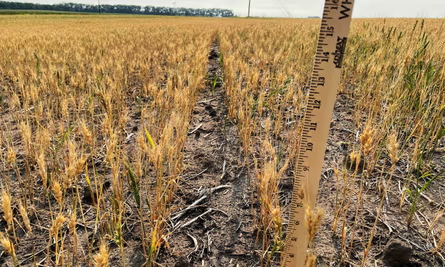UK farmers are being hit by one of the worst spring droughts for almost seven decades, and alarm is ringing through the agricultural community. With rain levels at record lows, May has become a make-or-break month — and the lack of moisture is already causing widespread crop damage and growing concern about livestock welfare.
The Met Office has established that large areas of the UK have had less than 20% of their normal spring rainfall, exerting extreme pressures on already dry fields. Farmers are sounding the alarm that bread crops like wheat and barley are suffering slow growth, and some regions are witnessing outright failures of early-planted crops. Hay and silage production, which is needed to feed livestock, is also crashing.
Unless there is significant rainfall prior to the end of May, farm losses may run into the millions, supporting inflationary pressure on food prices. Emergency water use restrictions and subsidies are now being debated in some areas to assist cash-strapped farmers to cope with the disaster.
This spring drought, recalling levels last seen during the 1970s, is another cold reminder of rising climate uncertainty affecting the UK. As the country gears up for a possible ferocious summer, voices demanding long-term water management practices and eco-friendly agriculture are becoming louder.





